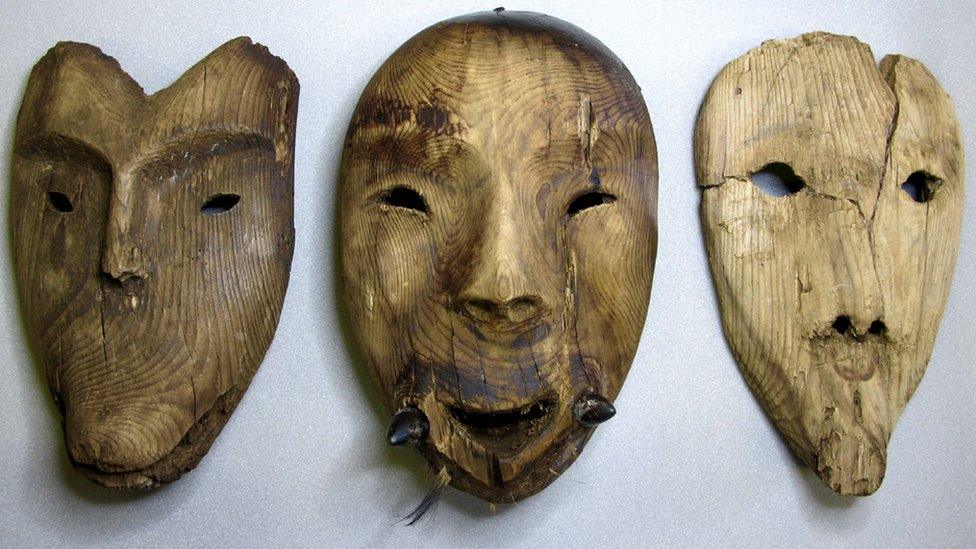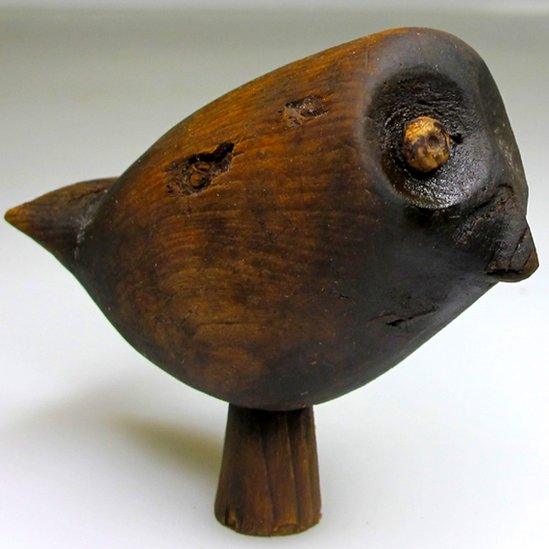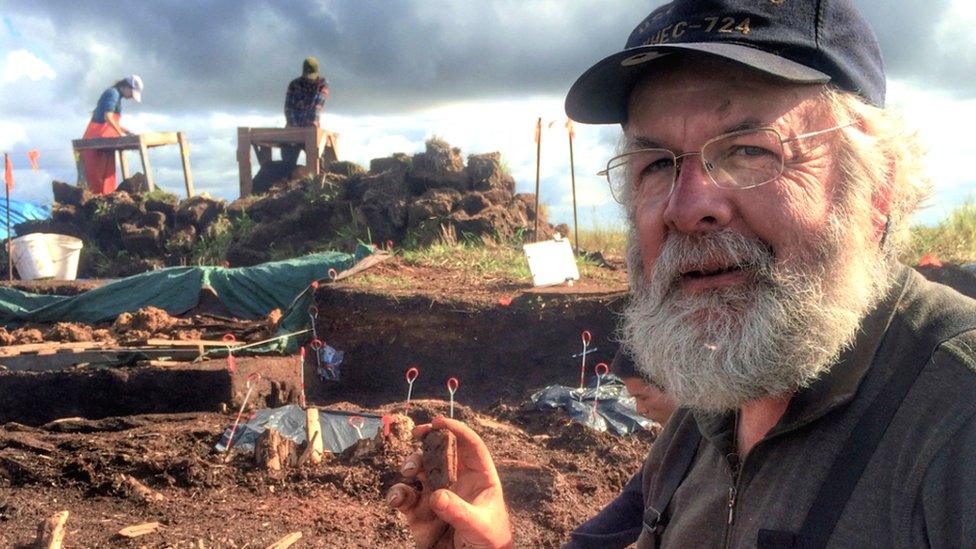University of Aberdeen team saves 50,000 frozen Alaskan artefacts
- Published

A collection of wooden masks was discovered at Nunalleq
More than 50,000 frozen Alaskan artefacts are to be returned home after being preserved by archaeologists at the University of Aberdeen.
The team has spent more than seven years recovering and preserving the objects at Nunalleq.
They faced a race against the clock in the face of melting ice to save the frozen artefacts.
Once removed from the earth, they began to deteriorate quickly so the team had to act quickly.
The collection is thought to be one of the largest of its kind from a single site in Alaska.
The items will be sent back to Alaska for the opening of a new culture and archaeology centre.
Dating back more than four centuries, the finds include wooden ritual masks, all preserved in "extraordinary condition".

This owl figurine has ivory eyes
Dr Rick Knecht, who is leading the university project, said the collection offered a unique insight into the indigenous people of Alaska.
He said: "The unique conditions in this arctic region mean artefacts have retained an unbelievable level of detail.
"We have uncovered grass baskets and mats made when Shakespeare walked the earth but when we take them out of the ground the grass weaving still retains a trace of its green colour and we have been amazed by the variety and intricacy of the woven patterns."
Dr Knecht and the team transported more than 50,000 items to the University of Aberdeen for preservation.

Dr Rick Knecht and his team faced a race against time
He explained: "When we began the project, it was impossible to conduct conservation work on site and the items recovered were transported, some still covered in earth, to Aberdeen.
"The long-term goal, however, has always been to return them to where they belong and that will become possible later this year with the opening of the new Nunalleq Culture and Archaeology Research Centre.
"This is one of the largest collections ever recovered from a single site Alaska, and perhaps even the whole Arctic region and is of huge significance.
"It is important their stories are told and we are delighted to be working with the Nunalleq community to ensure that these vital artefacts related to their lives can be shared in the place they belong."